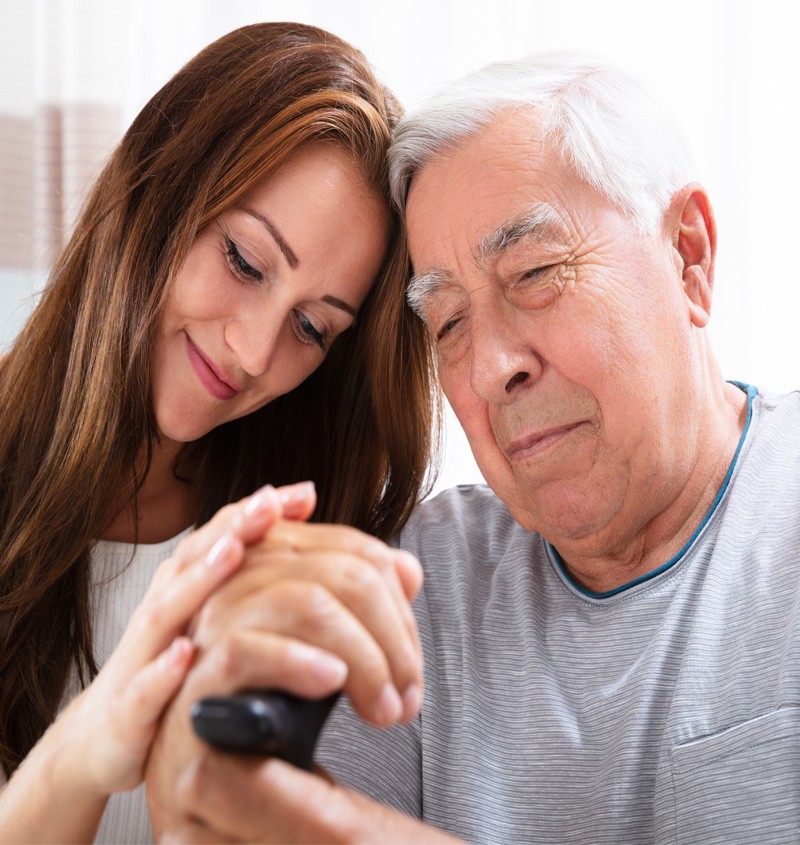What You Need to Know About Elderly Parent Care
Like it or not, aging is a part of life. As we watch our parents or loved ones grow older, we may not realize how much it will affect their lives and our own lives, too. Staying healthy and independent is the wish of most seniors, but the time may come when they’ll need some help with the daily tasks of living.
A decline in the health of our loved ones can affect their emotional and mental state as well as their physical needs. However, when we focus on elderly parent care, more options become available, and we can make better choices. Below are several topics to keep in mind as you reflect on the care your loved ones may need in the not-too-distant future.

Daily Living
In order for your parents to live with dignity and independence, daily living activities must be met. Examples of these are:
- Bathing and dressing themselves daily
- Self-Mobility (getting in and out of a chair, a bed, or on and off a toilet, etc.)
- Feeding themselves
- Standing and walking
- Personal hygiene (brushing teeth, shaving, styling hair, etc.)
You’ll need to find appropriate help if your parents have issues which prevent them from caring for themselves. Be aware that there are many options available, whether you providethe daily care or someone else does. In addition, you may be able to invest in a few accessories or equipment to allow them to continue to stay in their home and live independently.
Instrumental Activities
Additional activities, which may not be fundamental, are also related to independent living. Examples of these are:
- Cleaning and maintaining their living space
- Planning menus and preparing meals
- Running errands, paying bills, managing finances, going to appointments
- Shopping and buying necessities
- Taking prescribed medications properly and on time
- Speaking on the phone or through other devices
It’s vital that these instrumental activities are taken care of, either by the parents themselves or by others for them. If they have problems doing these tasks alone, it’s important to get help – whether it’s you, your siblings, nearby relatives, friends, or a professional caregiver. Other sources of help include technological devices or nonprofit organizations that assist with elderly parent care.
The first step is to be honest about your elderly parents’ requirements, then assess all the possible solutions.
Living Arrangements
Depending on their level of need, your elderly loved ones have several options. Many times, their first choice is to stay home with some additional help. Other alternatives may be to move in with a relative, (or have a relative move in with them), hire a professional caregiver, an assisted living facility, or, if their health is in greater decline, transferring them to a nursing home may be best.
The Best Elderly Parent Care
Even if we’re not with our parents every day, we all take on a caregiver role at some point. When we were children, they took care of us, now it’s our turn to do the same for them.
Elderly parent care is a big responsibility that doesn’t have to be handled alone. Make sure to get others involved to take a break and not become over-tired or overwhelmed.
Finding time for yourself and choosing the right mix for your parent’s welfare takes some time. It’s a situation that will change, even day to day. The best way to care for elderly parents is to stay informed, consider their comfort and happiness, and use as many resources as possible.
HealthAssist Watch
One such resource is the HealthAssist Watch. Do your parents need to be reminded to take their medication, schedule appointments, or other daily activities?
Embedded into a Samsung Galaxy watch, the HealthAssist is an application to track your loved one’s physical activity, call 911, notify a caretaker, and more. All with the touch of a button. Need more information? Contact WellCare Today!


